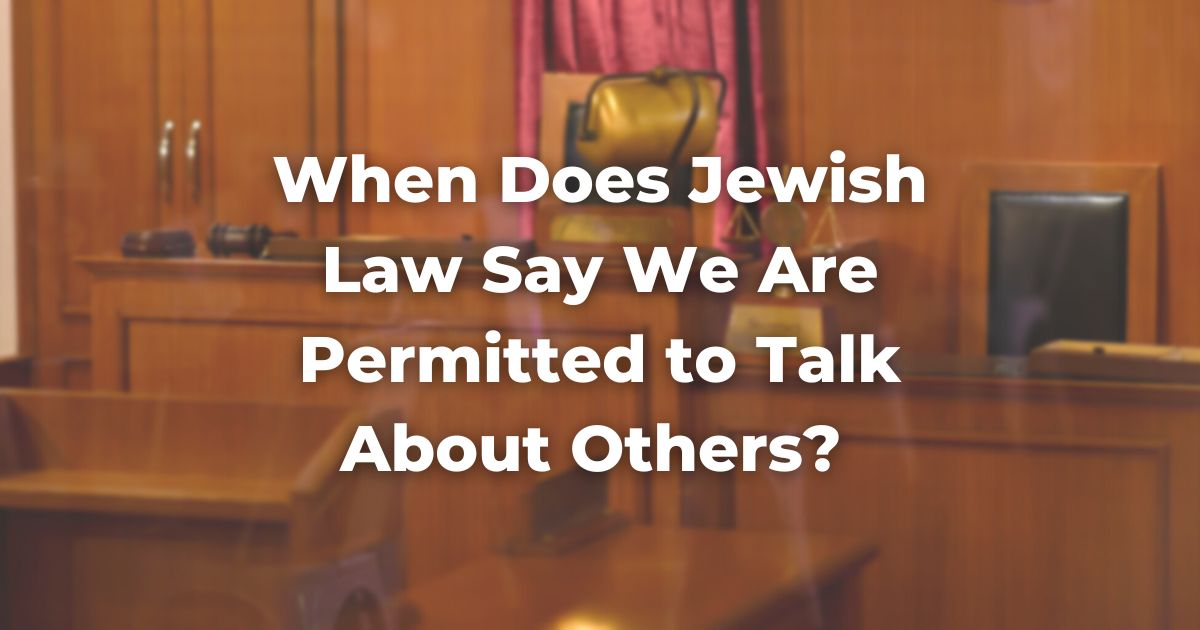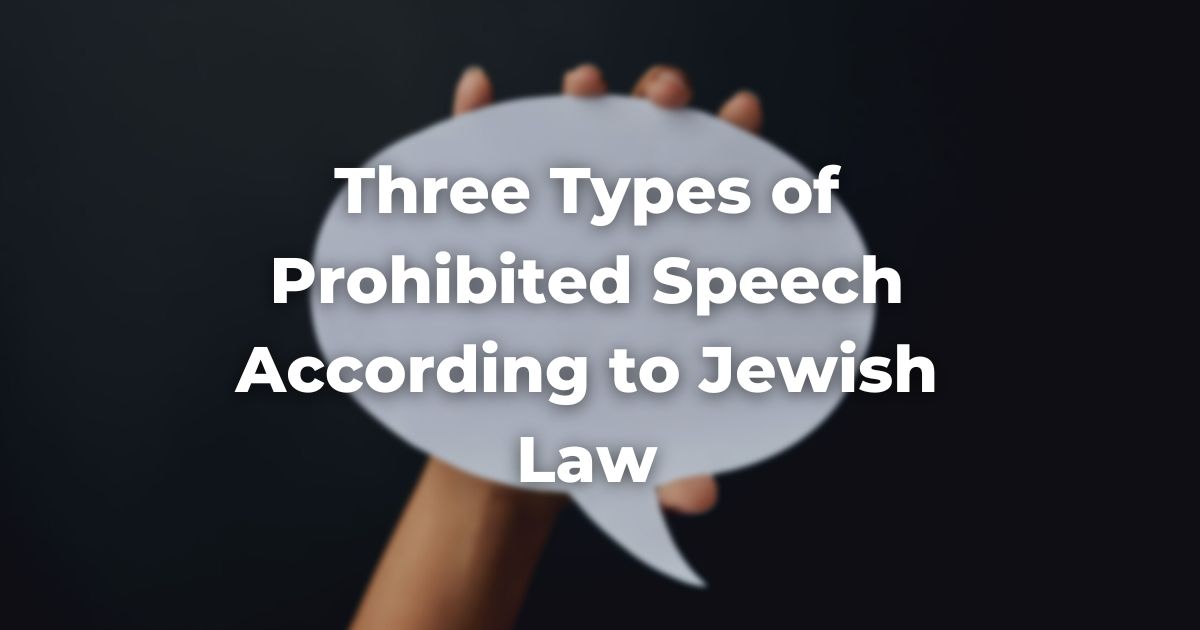While the TorahRefers to the first five books of the Hebrew Bible, the Tanakh, also called the Five Books of Moses, Pentateuch or the Hebrew equivalent, Humash. This is also called the Written Torah. The term may also refer to teachings that expound on Jewish tradition. Read more, and specifically Leviticus 19:16 establishes a broad prohibition that forbids almost all speech about other people, there are some occasions when it is permissible, or even required, to speak about other people.
Such speech is referred to as lashon hara I’to·elet (lashon hara for a beneficial purpose).
Thus, for example, when a potential employer eager to avoid hiring an incompetent worker seeks to talk about the potential employee with his or her previous employer, it is permissible for the former employer to speak honestly about the competency and suitability of the individual in question.
Similarly, if one hears someone mention impending plans to cause harm to another person, one is required to inform the intended victim.
Needless to say, these conversations should not take place in public, but rather in a private setting in which none but the intended party hears what one is in this context permitted to say.
The basis for waiving the prohibition in such cases is the second half of Leviticus 19:16, the part of the verse forbidding the act of “standing upon the blood of others.” While this phrase is generally understood as providing the basis for the prohibition, as discussed above, it is also regularly understood as implying a limitation on that prohibition as well.
As a result, the prohibition of speaking negatively about others is formally understood not to apply when silence will possibly bring harm to an innocent third party (Sefer Chofetz Chaim, Hilkhot Issurei L’shon Ha-ra 10, and Chofetz Chaim Hilkhot Issurei R’khilut 9).
There are other instances when some authorities permit speech that may appear to violate Leviticus 19:16, such as repeating statements that were made publicly or relating stories without the use of proper names.
However, when there is the possibility of causing harm, even if that possibility is remote, one should not rely on leniencies.
Generally speaking, it is considered a mitzvah to give testimony in court regarding the criminal or sinful behavior of others (Mishneh Torah, Hilchot Edut 1:1), and this is obviously the case even when that same report would constitute defamatory, thus forbidden, speech in any other context.
Adapted with permission from The Observant Life.
Author
-

The Observant Life: The Wisdom of Conservative Judaism for Contemporary Jews distills a century of thoughtful inquiry into the most profound of all Jewish questions: how to suffuse life with timeless values, how to remain loyal to the covenant that binds the Jewish people and the God of Israel, and how to embrace the law while retaining an abiding sense of fidelity to one’s own moral path in life. Written in a multiplicity of voices inspired by a common vision, the authors of The Observant Life explain what it means in the ultimate sense to live a Jewish life, and to live it honestly, morally, and purposefully. The work is a comprehensive guide to life in the 21st Century. Chapters on Jewish rituals including prayer, holiday, life cycle events and Jewish ethics such as citizenship, slander, taxes, wills, the courts, the work place and so much more.
View all posts






